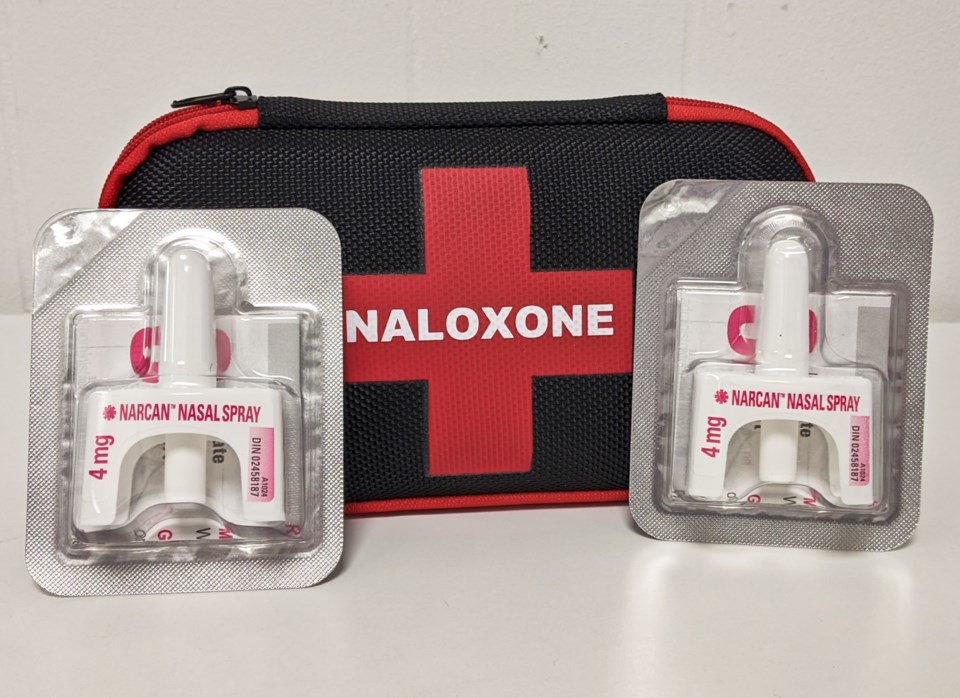A Guelph city councillor belives Guelph transit drivers should carry naloxone kits on their buses.
“Anytime that we have the ability to save someone’s life by having an accommodation nearby, regardless of whether or not that’s an epi pen or a first aid kit, I think that it’s our duty to provide that service,” said Counc. Erin Caton, who brought up the idea at a recent Wellington Dufferin Guelph Public Health board meeting.
Naloxone is a medication that can be administered by injection or nasally, and can temporarily reverse the effects of an opioid poisoning.
“During an opioid poison, a person’s breathing slows down or stops. Naloxone blocks the effect of opioids on the brain (and) temporarily reverses these effects on a person’s breathing,” said Medical Officer of Health Dr. Nicola Mercer.
“Giving naloxone can prevent death or brain damage from lack of oxygen,” she said, adding that it starts working in less than five minutes and wears off in 30 to 45 minutes.
Drug poisonings were up by 17 per cent last year in Guelph and Wellington County, and there were 27 deaths from suspected drug poisonings.
There were also 439 suspected drug-related incidents in the area last year, 40 per cent of which involved fentanyl.
Guelph transit drivers don’t currently carry naloxone kits, and the city doesn’t expect them to, said Stephan Dewar, city spokesperson and chief of Guelph Wellington Paramedic Service.
Currently, the city relies on “the quick response times of our paramedic services staff to care for people suffering medical emergencies, including safely administering naloxone when required,” Dewar said.
“The number one priority for our transit drivers is the safe operation of their vehicles and calling for assistance when required; we do not expect them to be offering emergency first aid, and instead, the expectation is that they are calling for emergency backup as needed,” he said.
Caton said that while paramedics can help, “it takes a while for someone to show up when you call them, even if you’re on a city bus. So I think it’d be great to just have that little extra bit of safety measure on the busses.”
It’s something Caton is interested in advocating for, and potentially bringing forward to city council for consideration in the future.
Wellington-Dufferin-Guelph Public Health has been distributing and educating the community about naloxone since 2017. In 2023, the agency distributed more than 3,000 naloxone kits, and the public can access kits from WDGPH offices in Guelph, Fergus and Orangeville.
“Naloxone is safe to use for all ages. It is also safe for anyone with medical conditions or individuals who are pregnant or lactating,” Mercer said. “The only reason to not give naloxone would be if there was a history of allergy to naloxone or its ingredients – which you likely wouldn’t know.”
During a WDGPH board meeting earlier this month, Dr. Matthew Tenenbaum said naloxone is “safe, and it’s best to get training, but it’s pretty straightforward to administer.”
He said even if you accidentally give it to someone who isn’t overdosing, it’s “very unlikely to cause any harm to them, because of the nature of the medication.”
“We think of this as something that ought to be easy to access and isn’t really harmful,” he said.
